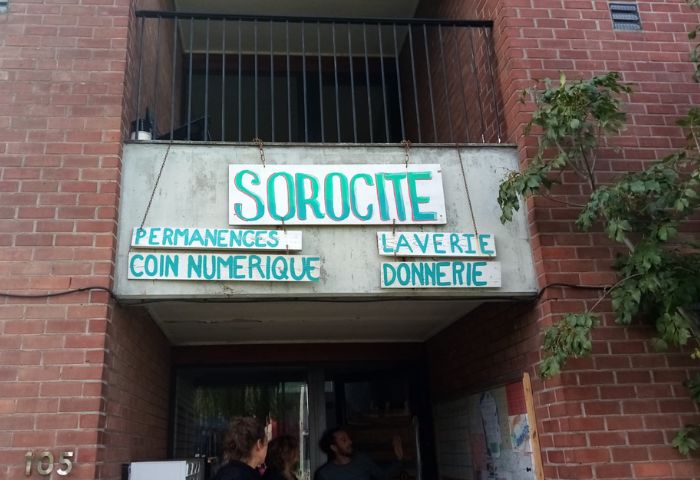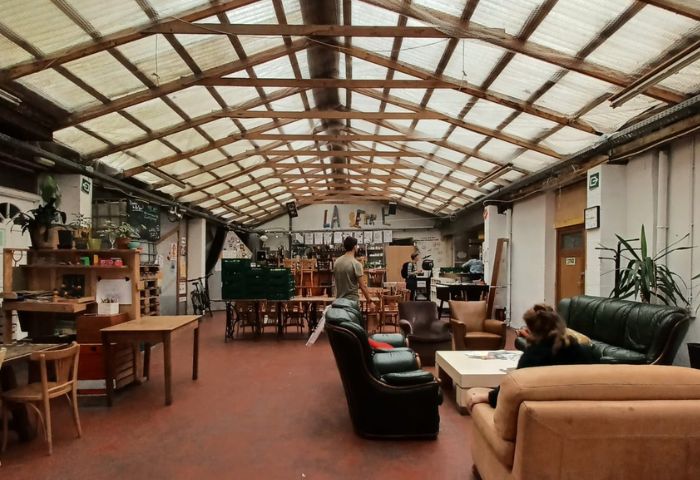Three days in Brussels: inside the Urban Commons Laboratory
In October 2023, a diverse group of learners, practitioners and commons advocates gathered in Brussels for a three-day immersive session. Organized as part of the BASICC project and hosted by Communa, the session was a deep dive into transitional urbanism: a model of city-making that transforms vacant spaces into community infrastructures.
The immersive session was also a pedagogical moment in the French “Diplôme Universitaire Espaces Communs”, bringing together students, trainers, and European partners from Italy, Latvia, and France. The aim: to explore Brussels not as a static city, but as a laboratory of commons-led transformation.
A Network of Temporary Commons
Over the course of the immersive session, participants were invited to step into a dynamic and evolving ecosystem of temporary commons that animate the urban fabric of Brussels. These are not just spaces—they are living experiments in how vacant buildings can be reimagined as engines of collective use, creativity, and care. Each visit revealed a different dimension of what it means to inhabit and transform the in-between: from abandoned structures to vibrant hubs of civic life.
Among the places explored were Maxima, a large-scale multifunctional venue where cultural programming, social services, and citizen initiatives coexist under one roof; Camping 58, a repurposed site for artistic and creative work; La Serre, a greenhouse-like incubator for social innovation; and Youyou, Sorocité, and other spaces where everyday life, housing, and solidarity practices take root in temporary settings.
These commons are made possible by transitional urbanism: a legal and political framework that enables communities to temporarily inhabit unused buildings, often through non-speculative agreements with property owners. Rather than waiting for permanent solutions, these initiatives act now—creating time-limited commons that respond to real needs while reimagining urban possibilities.
What ties them together is not a fixed model, but a shared ethic: that cities can be more inclusive, adaptable, and generous when residents are trusted to co-create the places they need. In Brussels, this ethic finds concrete form in an intricate constellation of projects, each grounded in its local context but collectively pointing toward a more equitable urban future.

A Commons lens for European learning
The session combined field visits with theoretical inputs and peer-to-peer exchange. From urban history with architect Gery Leloutre, to workshops with Communa’s founders, learners reflected on how governance, legal frameworks, and neighborhood dynamics shape the life of commons. Interactive formats—like “kiosks”, moving debates, and prototyping groups—allowed participants to reflect on their roles, skills, and visions for common spaces across Europe.
The Brussels experience was more than site analysis. It became a trans-local mirror: how can experiences from Belgium inspire future training in Naples or Riga? What are the common threads—and tensions—when building shared urban futures? Through concrete examples and shared moments, the session confirmed that transitional urbanism is not only about space, but about building capabilities: to negotiate, to cooperate, to imagine collectively


